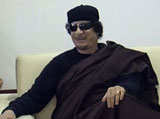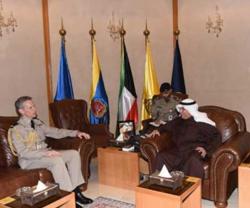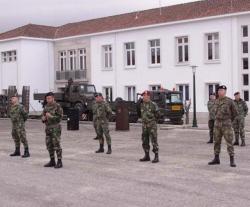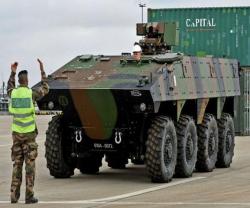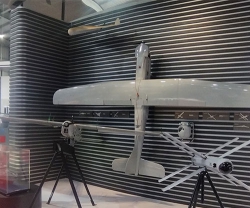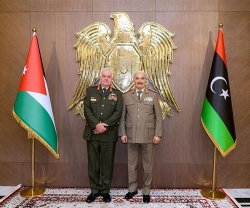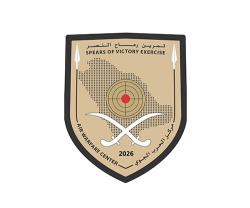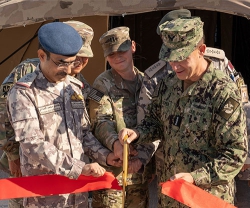Libya Rejects Arrest Warrants
29.06.2011 Libya
Muammar Gaddafi's government has hit back at an International Criminal Court (ICC) arrest warrant for war crimes against the veteran Libyan leader, charging the tribunal was just a tool of European powers.
Libya rejected the warrants issued for Gaddafi, 69, his son Saif al-Islam, 39, and the Head of Libyan Intelligence, Abdullah al-Senussi, 62, for atrocities committed in a bloody uprising that began mid-February.
The ruling is a "cover for NATO which is still trying to assassinate Gaddafi", said Libya's Justice Minister, Mohammed al-Gamudi.
Deputy Foreign Minister Khaled Kaaim said the ICC "functions as a European foreign policy vehicle.”
"It is a political court which serves its European paymasters," he said, adding: "Our own courts will deal with any human rights abuses and other crimes committed in the course of conflict in Libya."
ICC Chief Prosecutor Luis Moreno-Ocampo sought the warrants as thousands died in fighting and an estimated 650,000 people fled the country with Gaddafi clinging to power despite NATO strikes easing the siege of key rebel cities.
The White House hailed the ICC warrants, describing them as "another indication" that Gaddafi has lost all legitimacy.
Britain, another leading member of the UN, also welcomed the decision.
French Foreign Minister Alain Juppe said the warrant "confirms that the question is not whether Gaddafi should leave power, but when he will leave power".
The ICC said the 3 men were wanted for their roles in suppressing the revolt, in which civilians were murdered and persecuted by Libyan Forces, particularly in Tripoli, Benghazi and Misrata.
Gamudi noted that his country was not a signatory to the tribunal's founding Rome Statute, and "does not accept the jurisdiction of the court".
In his submission, Moreno-Ocampo said Gaddafi had a personal hand in planning and implementing "a policy of widespread and systematic attacks against civilians and demonstrators and dissidents in particular".
"Gaddafi's plan expressly included the use of lethal force against demonstrators and dissidents," the prosecutor contended.
The Libyan strongman ordered the shooting of civilians leaving mosques after evening prayers, said the submission, and his forces carried out a systematic campaign of arrest and detention of alleged dissidents.
Moreno-Ocampo's investigation follows a referral by the United Nations Security Council on the Libyan conflict on February 26. (AFP)
Libya rejected the warrants issued for Gaddafi, 69, his son Saif al-Islam, 39, and the Head of Libyan Intelligence, Abdullah al-Senussi, 62, for atrocities committed in a bloody uprising that began mid-February.
The ruling is a "cover for NATO which is still trying to assassinate Gaddafi", said Libya's Justice Minister, Mohammed al-Gamudi.
Deputy Foreign Minister Khaled Kaaim said the ICC "functions as a European foreign policy vehicle.”
"It is a political court which serves its European paymasters," he said, adding: "Our own courts will deal with any human rights abuses and other crimes committed in the course of conflict in Libya."
ICC Chief Prosecutor Luis Moreno-Ocampo sought the warrants as thousands died in fighting and an estimated 650,000 people fled the country with Gaddafi clinging to power despite NATO strikes easing the siege of key rebel cities.
The White House hailed the ICC warrants, describing them as "another indication" that Gaddafi has lost all legitimacy.
Britain, another leading member of the UN, also welcomed the decision.
French Foreign Minister Alain Juppe said the warrant "confirms that the question is not whether Gaddafi should leave power, but when he will leave power".
The ICC said the 3 men were wanted for their roles in suppressing the revolt, in which civilians were murdered and persecuted by Libyan Forces, particularly in Tripoli, Benghazi and Misrata.
Gamudi noted that his country was not a signatory to the tribunal's founding Rome Statute, and "does not accept the jurisdiction of the court".
In his submission, Moreno-Ocampo said Gaddafi had a personal hand in planning and implementing "a policy of widespread and systematic attacks against civilians and demonstrators and dissidents in particular".
"Gaddafi's plan expressly included the use of lethal force against demonstrators and dissidents," the prosecutor contended.
The Libyan strongman ordered the shooting of civilians leaving mosques after evening prayers, said the submission, and his forces carried out a systematic campaign of arrest and detention of alleged dissidents.
Moreno-Ocampo's investigation follows a referral by the United Nations Security Council on the Libyan conflict on February 26. (AFP)
Previous PostUAE Recognizes Libya’s Transitional Council
Latest news
Latest events
Doha International Maritime Defence Exhibition & Conference (DIMDEX 2026)
19 - 22 Jan 2026Doha - QatarUMEX – SimTEX
20 - 22 Jan 2026ADNEC Centre Abu Dhabi, - United Arab EmiratesWorld Defense Show (WDS) 2026
08 - 12 Feb 2026Riyadh - Saudi ArabiaSAHA EXPO International Defence & Aerospace Exhibition
05 - 09 May 2026İstanbul Expo Center - Turkey

